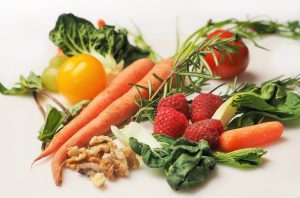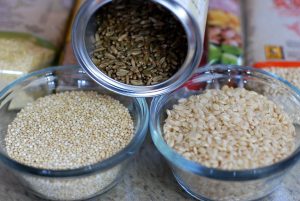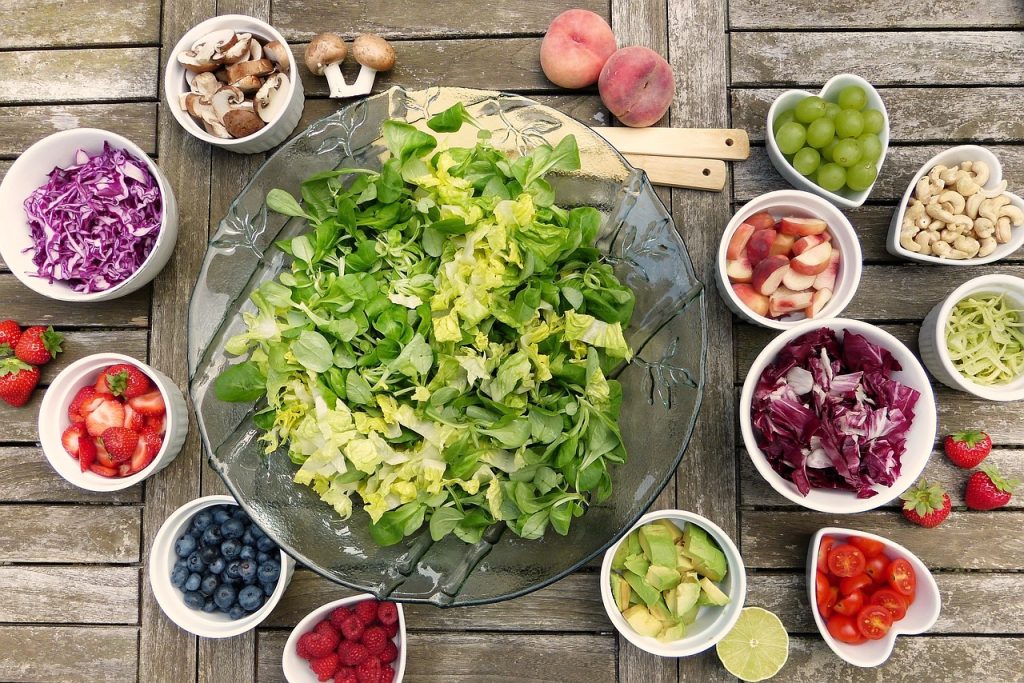Proper nutrition is frequently ignored in discussions concerning recovery from substance abuse. Detoxification, counseling, and support groups often take center stage.
While these things are essential, you cannot fully recover from addiction without a balanced diet. Regular substance abuse drains vital nutrients to improve your body’s functioning capacity.
Additionally, substance use leads to physiological abnormalities, especially when coupled with hereditary factors, which may cause problems like cravings, anxiety, depression, and other disorders that make recovery difficult.
This blog post discusses the importance of nutrition in addiction recovery. Read on to learn how proper nutrition can help in your recovery journey.
The Effects of Addiction on Nutrition and Diet
Look at it this way- everything you consume can harm or help your body in one way or another. Substance abuse is no different. It can significantly affect your health, well-being, and nutrition.
You likely spend more time and money buying and using drugs than you could adopt a healthy lifestyle and making healthy meals.
Addiction affects your nutrition in various ways, with the most common unhealthy eating behaviors being:
Poor feeding or not eating enough
If you abuse drugs, you may spend all your money on alcohol and drugs, leaving too little for food. That may force you to opt for less expensive, unhealthy food options or not have enough food to energize and nourish your body.
Not eating at all
Meth and cocaine are some of the substances which reduce appetite. Others, like opioids and alcohol, can make you forget to eat when high. Nevertheless, addicts frequently go for brief periods without eating.
Binge eating
Some people may have a voracious hunger when impaired and binge eat to the point of being uncomfortably full.
What Is Nutritional Therapy?
Nutritional therapy seeks to restore the balance between the brain and body by adopting dietary changes customized to the person’s needs.
The fundamental objective of nutritional therapy is to help addicts restore their health and take in the physical effects of transitioning into sobriety.

Nutritional therapy also seeks to provide addicts with an in-depth knowledge of health and train them in effective self-care techniques, giving them the confidence to take charge of their health and prepare them for a successful recovery.
The Importance of Nutrition in Addiction Recovery
According to research, nutritional therapy may be an effective tool for addiction recovery. But what exactly is the impact of nutrition on addiction recovery?
Nutritional therapy helps correct nutritional deficiencies
Nutritional therapy takes care of particular mineral, vitamin, and micronutrient deficiencies in the body. Excessive drug use may harm your body physically, interfere with your appetite, and hinder the absorption of some nutrients.
For example, zinc deficiency is common among alcoholics. Partly, this is because alcohol accounts for most alcoholics’ daily calorie intake rather than foods high in zinc, such as nuts and whole grains.
Yet, excessive consumption of alcohol also impairs zinc absorption in the stomach and even discharges zinc through the urine. This is also known as having a leaky gut.
A leaky gut occurs when the protective layer between the digestive tract and the rest of the body weakens, enabling toxins to enter the liver and increasing the risk of alcohol-related liver disease.

Studies have associated Zinc deficiency with higher rates of apathy, depression, disorientation, and irritability, all of which can make addiction recovery more difficult and raise the likelihood of relapse.
Folate and vitamin B-6 are other prevalent nutritional deficiencies associated with chronic substance abuse. Deficits in folate and vitamin B-6 reduce the brain’s ability to produce dopamine and serotonin.
Insufficient serotonin levels can lead to impulsive aggression, compulsive behaviors, obsessive thoughts, and vulnerability to triggers. Dopamine deficiency can cause slower reaction times and dim the pleasure center.
These paired impacts can lead to cravings and weaken your resistance to them.
Nutritional therapy helps balance dopamine levels
Regarding dopamine, researchers hypothesize that individuals use drugs as a form of self-medication since drugs cause an instant release of this chemical.
Dopamine is a naturally produced, feel-good hormone that causes joy and pleasure. Drugs induce a dopamine rush into your brain, which results in an intense sense of satisfaction.
But over time, the unnatural manipulation of dopamine amounts ultimately causes a decrease in dopamine receptors in the brain, resulting in reduced dopamine function.
Research shows that some individuals have fewer dopamine receptors than others because of genetic reasons, which increases their risk of addiction by reducing their brains’ response to stimuli.

The constant poor feeding habits (prevalent in addiction) do not provide sufficient amino acids for protein synthesis.
The body requires this to produce more dopamine; hence the lack of proper nutrition worsens the function of dopamine even more.
Nutritional therapy can offer a customized, high-protein diet to boost dopamine receptors and supply enough amino acids to maintain the body’s dopamine levels.
Nutritional therapy helps control cravings
Drug addicts often suffer from hypoglycemia. An experiment by William Billica of InnerBalance Health Center showed that 98% of alcohol addicts had below 60 milligrams of blood sugar levels per deciliter (mL/dC). The normal range is 70 and 99 mL/dC.
The brain sends messages encouraging you to replenish your energy quickly once your blood sugar drops. Cravings, generally for something sweet, start to appear around this time. You might easily confuse a sweet tooth craving for an alcoholic one.

Nutritional therapy seeks to stabilize blood sugar levels by limiting the intake of processed foods and products with plenty of added sugar.
It focuses on foods with a relatively low Glycemic Index (GI) and balancing carbohydrate consumption with fat and protein.
How Nutritional Therapy Fits into Your Overall Treatment
During therapy, your doctor conducts a thorough evaluation of your overall health, considering factors such as:
- Acute weight loss or gain
- Co-occurring mental health problems
- Any medications you have taken in the past or are currently taking.
- Family history of mental health problems
- Severity or frequency of substance use
The proper diet can help reduce the pain and suffering associated with detox and help you deal with any changes in appetite you might experience.
Over time, learning to plan and make meals for yourself encourages you to eat for health and self-care rather than for emotional reasons or as a replacement for an addiction.
Top Foods for Addiction Recover
What does the diet of an addict in recovery look like? Although achieving a balanced diet is not always straightforward, consuming the following foods while undergoing medically assisted drug withdrawal is a great starting point:
Poultry and fish
Poultry and fish contain tyrosine, an amino acid that produces dopamine and norepinephrine.
The body cannot process tyrosine when you abuse drugs, so increasing your poultry and fish intake is an excellent way to improve your mood and well-being.
Tofu
Tofu is an excellent source of the low-calorie, low-fat protein your liver needs to repair alcohol or drug-related damage.

Tofu contains no fat, which makes it easier for the liver to absorb during the digestive process, promoting better healing.
Bananas
Bananas are a handy snack and a good supply of the amino acid tryptophan, which is necessary for the production of serotonin, which promotes sound sleep. Potassium, vitamin B6, and vitamin C are also abundant in bananas.
Yogurt
It is essential to repair your digestive system to improve your body’s ability to absorb nutrients after using drugs or alcohol.

Yogurt contains probiotics that may help your gut maintain a healthy microbiome during addiction recovery.
Vegetables
Different types of vegetables offer a variety of minerals, vitamins, fiber, and other vital nutrients that the body requires for energy and proper functioning.
Consumption of starchy foods like potatoes, leafy greens like kale, and cruciferous veggies like broccoli help the body become healthy again after addiction.
Whole grains
Whole grains supply the body with complex carbohydrates that keep you full for longer while also providing essential fiber to support the recovery of your digestive system. You can always substitute wheat flour with whole grains in pasta and bread.

The most crucial aspect of nutrition for recovering addicts is figuring out what foods and eating habits work best for you. For example, you may dislike raw kale but realize that braising it makes it tasty.
Experimenting with various healthy foods is among the best ways of speeding up your addiction recovery.
Bottom Line
A healthy and balanced diet is often overlooked during recovery from drug addiction. But in reality, the lack of proper nutrition can hold you back from enjoying the full benefits of sobriety.
You cannot afford to ignore the role of nutrition in addiction recovery. As you undergo counseling, you must eat healthy to speed up addiction recovery.
A licensed dietician can guide you on changes to your diet to help your body recover and reduce the risk of cravings triggered by unhealthy eating.
Are you or loved one struggling with substance abuse? CCIWA is here to help you through the journey to addiction recovery.
Contact us today for more information about our drug and alcohol treatment program.
We have the experience and passion to help you or a loved one start living a healthier, happier life.



